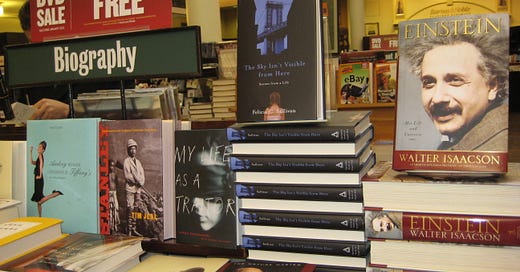In eighth grade, my English teacher tasked us with a rather odd assignment—write one sentence that encapsulates you. Maybe my teacher got high off Hemingway (baby shoes and what not) or wanted to enact some form of psychological torture on a bunch of thirteen-year-olds who would rather…
Keep reading with a 7-day free trial
Subscribe to Getting Crafty to keep reading this post and get 7 days of free access to the full post archives.




